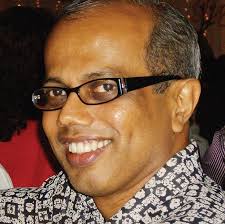Francis shakes up Vatican financial system; sends message to universal church
In a blow to the old guard at the Vatican, the Bishop of Rome has sacked the entire board of the Vatican’s Financial Information Authority (AIF) and replaced them with a panel of international financial experts.
Jun 12, 2014

By Anil Netto
In a blow to the old guard at the Vatican, the Bishop of Rome has sacked the entire board of the Vatican’s Financial Information Authority (AIF) and replaced them with a panel of international financial experts. The AIF was set up in 2010 by Pope Benedict XVI to curb money laundering. A Swiss anti-money laundering expert, Rene Bruelhart, was roped in as a director. But Bruelhart reportedly encountered resistance from other board members.
The action against the financial regulators is the latest move by Francis to rein in the scandal-plagued Institute for Works of Religion (IOR), more popularly known as the ‘Vatican Bank’. In January, Francis replaced four of the five cardinals responsible for oversight of the bank.
While the Council of Europe had praised the banks efforts to improve transparency, it noted that financial regulators had not carried out a thorough inspection of the bank or of papal assets.
The Vatican Bank has long been a source of embarrassment for the Church ever since the failure of financial advisor Michele Sindon in the Franklin National Bank collapse in 1974 (when the Vatican lost some US$30m).
In 1982, Banco Ambrosiano collapsed after hundred of millions of US dollars were siphoned out via the bank’s main shareholder, the Vatican Bank, which held a 10 per cent stake in Banco Ambrosiano.
That same year, the murder in London of Banco Ambrosiano chairman Roberto Calvi, dubbed “God’s Banker”, added to the sense of crisis that something had gone seriously wrong with the management and oversight of the Vatican Bank.
No doubt it was the crisis at the Bank and the allegations of money laundering that contributed to the tremendous burden that Benedict faced in the months leading up to his resignation as pope.
Francis had no choice but to carry out the reforms, shaking up the bank and the regulators by the scruff of their necks.
By sacking virtually the entire boards at both the Vatican Bank and the financial regulatory agency, Francis has signalled that he means business — and that it can no longer be business as usual. No more money laundering and lack of accountability and proper stewardship! Among the other options he had reportedly considered were whether a Vatican Bank was necessary in the first place. That illustrates the extent of the crisis at hand.
Francis has also set the tone for the rest of the universal Church (and even governments) by placing high on the agenda the issue of financial transparency and accountability in the management of funds. Getting the right people to exercise financial oversight is crucial in any organisation, what more the Church, in which many people especially donors have placed enormous trust and good faith.
Now, this message of transparency and accountability in the management of church funds needs to filter down the universal Church, from archdioceses and dioceses, to parish churches right down to parish ministries, societies and committees. Independent audits should be carried out as a matter of course, preferably by external auditors if internal expertise is not there. Unnecessary and wasteful projects should be avoided especially when many ordinary people are suffering.
Gandhi himself recognised the importance of proper accounting records. In one anecdote published online by the Gandhian Institutes and the Gandhi Research Foundation, Gandhi once encountered a hard-working, honest voluntary political party worker who had turned to him for help. This volunteer said he could not fully account to his committee for funds he had spent in the course of work due to inadequate accounting records and asked Gandhi to intervene in excusing the shortfall.
Gandhi’s response was surprisingly hard: “Every paisa of public funds is a sacred trust. To me every such paisa unaccounted for is a paisa misappropriated. Proper account-keeping is for a public worker not merely a matter of rupees and annas, but part of his character.
“You must be able even now to get most of the accounts in writing and produce the necessary vouchers. Otherwise your Committee has a perfect right to demand the money from you. If necessary you should sell any property or other possessions you may have to discharge such a debt.”
Similarly, Gandhi recognised that a huge portion of the credibility of a society or organisation hinges on how it handles its own finances — its sources of funds, how it is spent and how such receipt and expenditure is accounted for. Every single ringgit and sen has to be accounted for; otherwise, the credibility of the entire organisation would be at stake.
To the credit of the Bishop of Rome, he too realises that the credibility of the Church depends on how it manages and accounts for its funds and assets. Hopefully, the rest of the universal Church gets the message and takes all necessary measures to improve transparency and accountability. It is a sacred responsibility we have to live up to if the Church is to enhance its credibility, which has been greatly eroded in recent times.







Total Comments:0